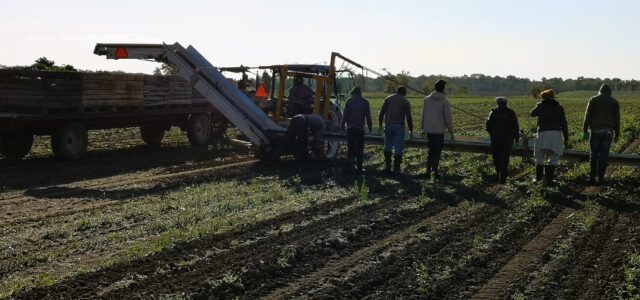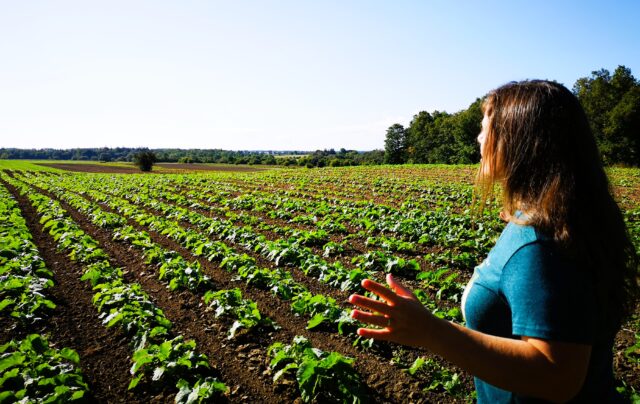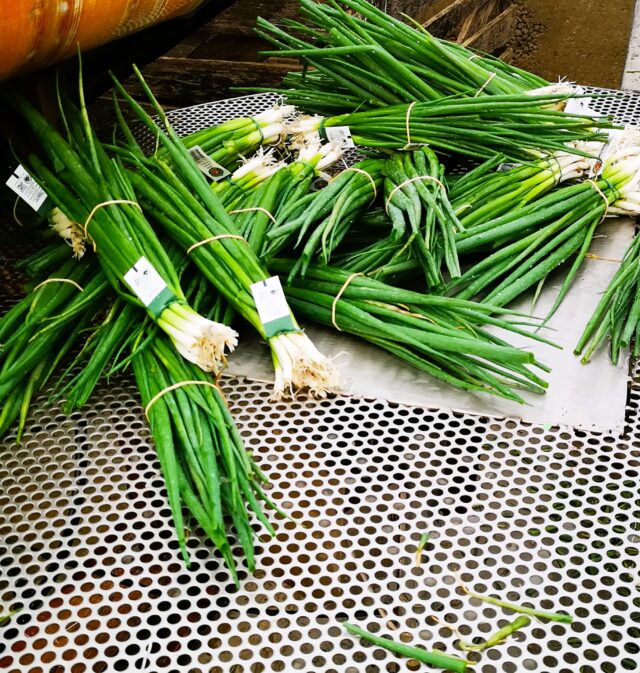Climate change harvest: visit to a local farm

As I pick up a clod of earth still moist from the morning dew, vegetable farmer Jenn Pfenning says the soil is just one element of our ecosystem that is under environmental pressure that it has never experienced before.
“We’re losing soil through various types of farming practices that degrades it. And as temperatures increase and we have fewer cloudy days, the sun can harm the organic matter. We work really hard to build the soil’s organic matter in our fields because that is what enables crops to grow,” says Pfenning of the microorganisms that cycle nutrients in order to create the web that roots need to grow a plant.

“Science tells us that there’s a whole microbiome that is a living, breathing world under our feet. It’s just like we understand the microbiome in the human gut. If we lose our soil’s organic matter, we lose the ability to grow crops that we eat. That’s being lost around the world and being washed away, blown away and burned away.”
There are fears, she says, the science community tells us that in the next several decades, farmers around the planet will lose enough arable soil to grow food. What, she asks, are we going to eat then?

Family-operated since 1981, Pfenning’s Organic Farm feeds a lot of people from their 700 acres of organically-grown crops tended by 150 employees who play roles planting, growing, harvesting, washing and packing a wide variety of vegetables.
For more, visit CBC-KW.

